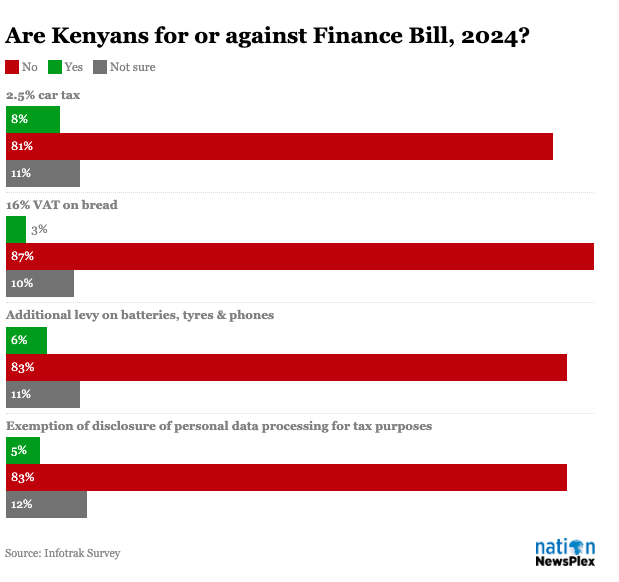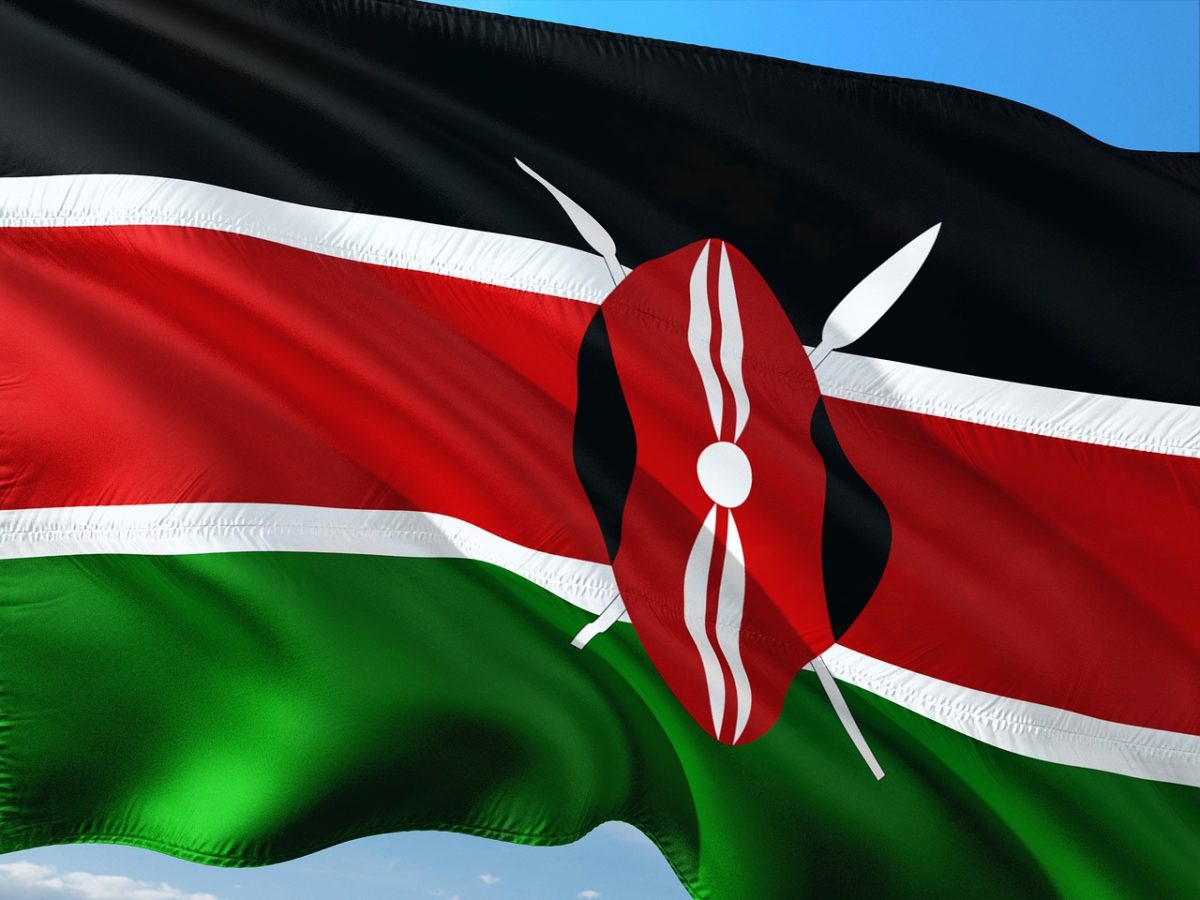Summary
- Necessity for Fiscal Reforms: Kenya’s Finance Bill 2024 aims to address fiscal deficits through tax reforms and align with IMF-supported economic stability measures.
- Strong Public Opposition: The Bill has sparked widespread protests, reflecting deep dissatisfaction among Kenyans due to increased costs of living and perceived punitive tax measures.
- Government Advocacy vs. Public Sentiment: President Ruto promotes the bill as essential for economic health, contrasting sharply with the negative public perception and overwhelming opposition revealed in polls.
- Government Response to Protests: In response to intense public backlash, the government amended the Bill to remove some controversial taxes, highlighting the impact of civic engagement on policy.
- Protest violence: Protests against Kenya’s Finance Bill 2024 have intensified, resulting in violent confrontations between the police and demonstrators, predominantly young adults. The police response, involving tear gas, water cannons, and live ammunition, has led to numerous injuries and arrests, and notably, one fatality.
- Lessons on Public Policy: The situation underscores the importance of public buy-in for successful policy implementation, effective communication, and balancing international standards with local economic realities.
Background
In 2024, Kenya introduced the Finance Bill, aiming to address a fiscal deficit by enhancing revenue through various tax reforms. While the government, backed by the International Monetary Fund (IMF), views these measures as crucial to the nation’s economic stability, the response from Kenyan citizens tells a different story.
The Finance Bill 2024 was drafted in response to Kenya’s urgent need to increase its tax base and reduce a growing budget deficit. The Bill proposes significant changes to tax frameworks, including new levies on motor vehicles, financial transactions, and basic commodities such as cooking oil and bread. These measures are part of a broader Medium-Term Revenue Strategy (MTRS) aimed at boosting domestic revenue, which had been on the decline.
International Support and Local Backlash
The involvement of the IMF with the Bill is part of a broader framework of economic reforms endorsed by the IMF to stabilise the Kenyan economy and reduce its debt burden. The IMF has historically supported such fiscal reforms that aim to increase tax revenues and rationalise public spending, seeing these measures as essential to achieving fiscal sustainability and economic growth in member countries.
President William Ruto’s personal involvement in promoting and defending the Finance Bill 2024 has been pronounced. He has actively advocated for the bill as a necessary step towards fiscal responsibility and economic stability. Ruto’s administration has highlighted the bill’s role in streamlining tax collection, supporting local industries, and reducing reliance on external borrowing.
His leadership style in this regard reflects a focus on long-term economic policies, even in the face of significant public backlash. Internationally, his efforts to implement stringent fiscal policies might be viewed positively, aligning with global financial standards and practices aimed at sustainable economic management. This perspective supports the notion that tough decisions, such as those encapsulated in the Finance Bill 2024, are necessary for the greater economic health of the country.
Public Perception and Response
President Ruto’s relationship with the international community, particularly entities like the IMF, contrasts sharply with his local perception. Despite governmental assurances, public sentiment remains overwhelmingly negative. Polls indicate that a significant majority of Kenyans oppose the new taxes, with particular resistance to VAT on essential items like bread and financial services. The intensity of the protests, which have included a broad demographic, highlights a deep-seated frustration among citizens.

The response has been so robust that it prompted the government to amend the Bill, scaling back some of the most controversial taxes. This action underlines the powerful role of public opinion in shaping policy, especially when it impacts the everyday lives of the populace.
Violence at Protests
Protests against the Bill have escalated, resulting in violent clashes between demonstrators and police forces in major cities, including Nairobi. The predominantly young adult demonstrators oppose the bill, claiming it imposes punitive economic measures. Initially peaceful, the protests turned violent as police used tear gas, water cannons, and in extreme cases, live ammunition.
The confrontations led to numerous injuries and arrests, with over 200 protesters injured and many arrested. The police response has been criticized for excessive force. Tragically, there has been one fatality, a protester shot during the clashes. The violence and death have sparked outrage from human rights organizations and the public, highlighting the disconnect between the government’s fiscal policies and the populace’s tolerance for economic strain.
Lessons Learnt
Among the key lessons these unfolding events provide are:
Economic Reforms Need Public Buy-in: Reforms, no matter how well-intentioned, must consider the socio-economic realities of those most affected. Lack of public support can be a fatal flaw in policy implementation.
Communication is Key: Effective communication about the reasons for reforms and their expected benefits helps build public trust and understanding.
Balancing Acts: Governments need to balance between meeting international economic standards and addressing local economic conditions and sentiments.
